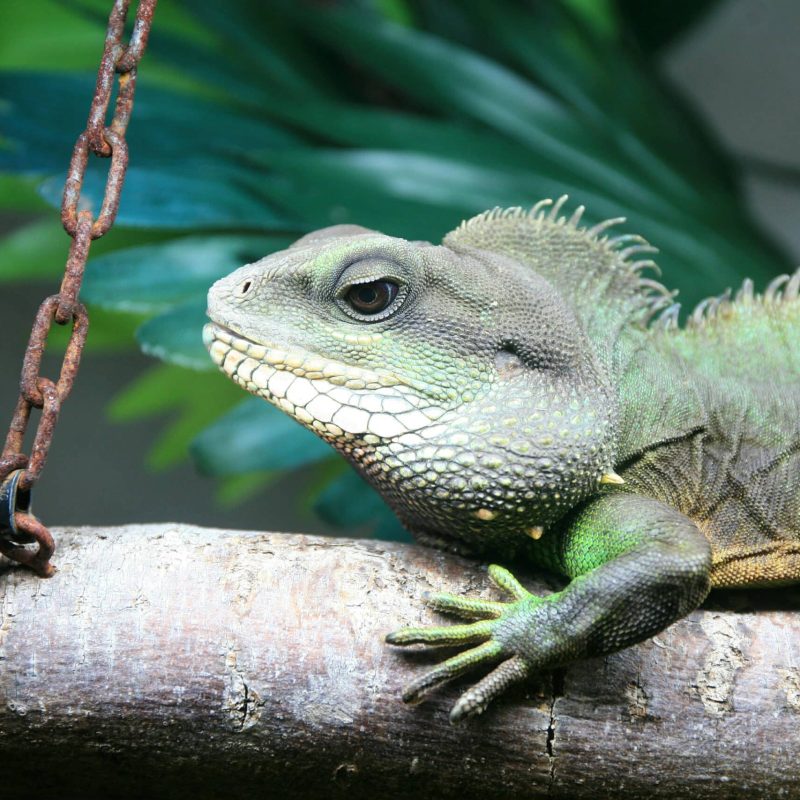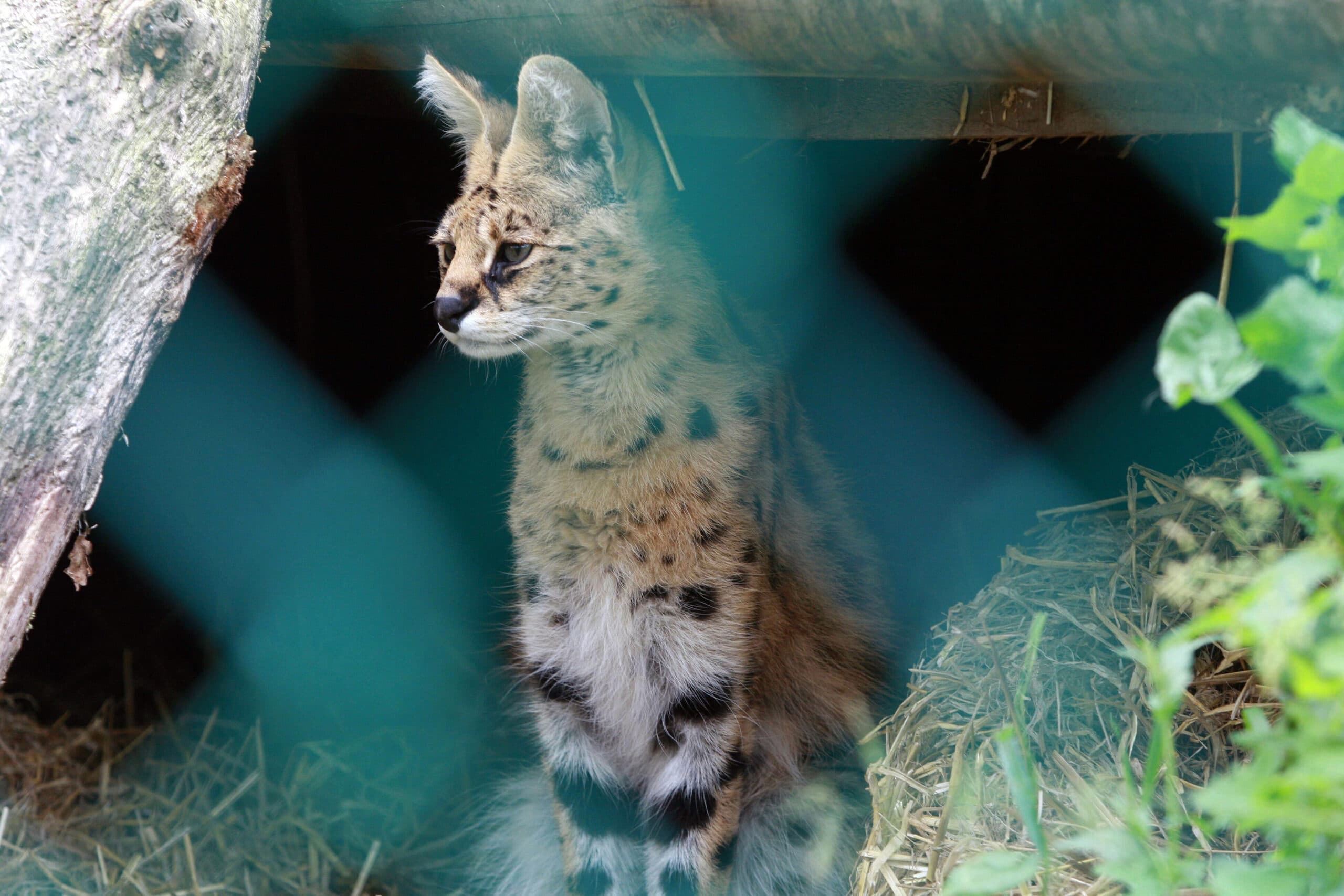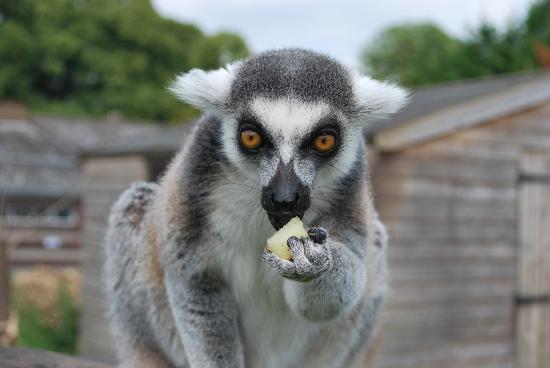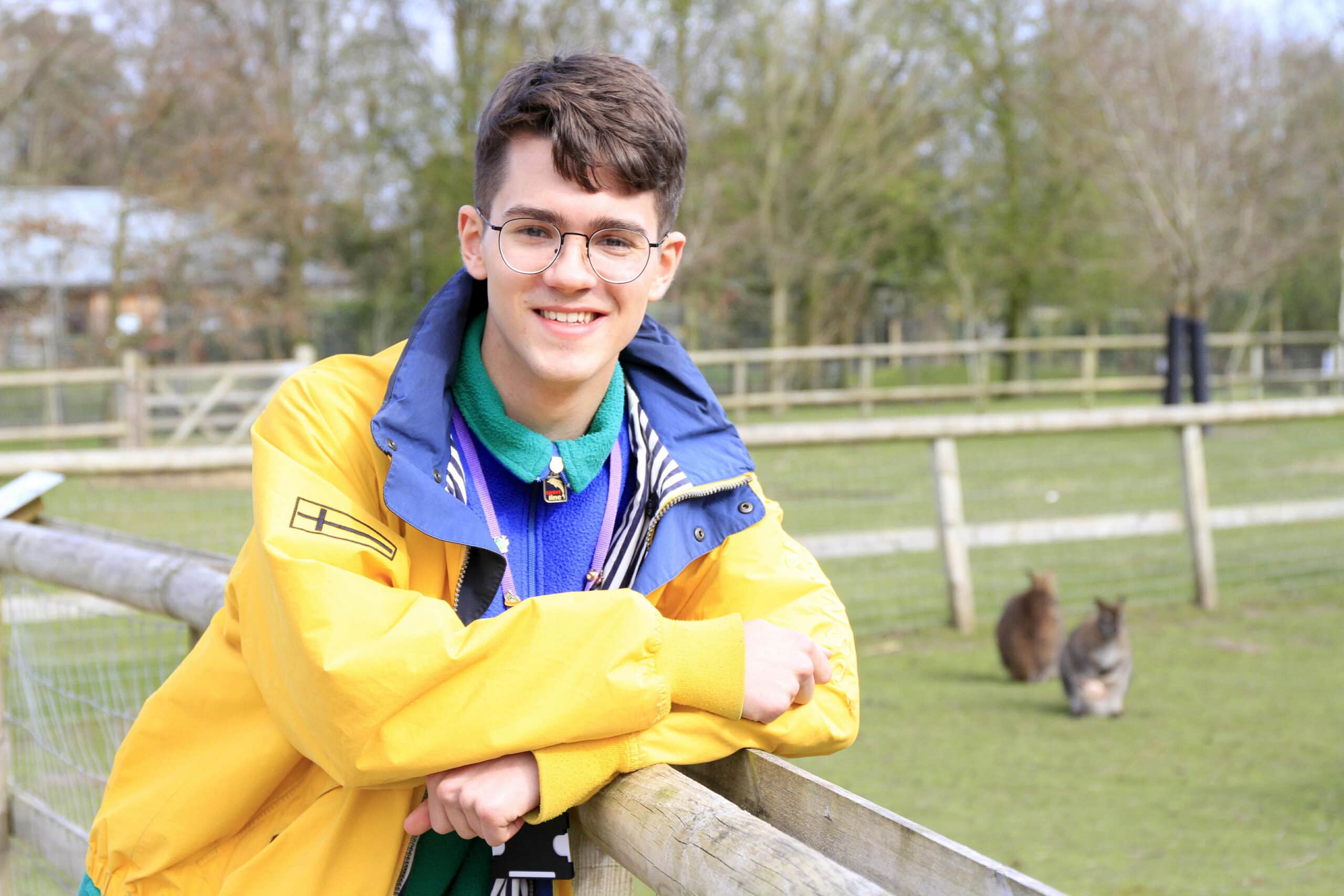Would you love an exciting and rewarding career in the zoo industry? At UCR you benefit from a unique combination of academic study with industry focused training in the management of zoo animals.
The FdSc Zoo Management course includes career-focused modules such as captive breeding and record keeping, zoo animal training and animal health and disease, plus you will have extensive access to our wide range of exotic species including primates, small carnivores, reptiles, amphibians and birds of prey.


Our Zoo Management lecturers have many years of experience working in the diversity of roles zoos can offer, and they bring this passion and knowledge to the classroom.
After studying our foundation degree, you can progress onto our Zoo Management top-up, which is an opportunity for zoo biologists and animal scientists to explore more specialist modules within zoos and conservation. These include zoo enclosure design, conservation education and animal enrichment.


Dominic Grover | FdSc Zoo Management
“I first started studying at Reaseheath as a college student, and I enjoyed it so much that I decided to progress onto studying at University Centre Reaseheath. After studying Level 3 Animal Management, I completed a FdSc in Zoo Management, and then progressed onto the BSc (Hons) Zoo Management (top-up) for extra experience.
“I love the campus at Reaseheath, especially the extensive on-site mini zoo facilities, so it was an easy decision for me to progress onto degree level study here. I am a residential student too which I like as my accommodation is modern and spacious and I’m close to all my lectures and the social activities happening across campus.
“Throughout my degree I have gained a lot of practical experience as well as theoretical knowledge which I can take with me into my career. We regularly have guest lectures from industry professionals which I find really useful, and my lecturers have lots of industry experience too, so they are great to learn from.
“My main area of interest in zoo management is carnivores, so after I graduate I would like to become a carnivore keeper. I also plan to complete a MSc in Zoo Conservation and Biology and then eventually become a head of department in a zoo, and I feel that UCR is preparing me well to achieve this.”

This course is aimed at students who wish to develop a career within the zoo industry. Students are provided with a combination of academic study with practical learning opportunities to develop a range of academic and professional skills specific to the zoo industry, with knowledge of exotic captive animal management.
Students are expected to study and complete 120 credits per year, which comprises six modules of study per academic level/year. All modules in year 1 are mandatory study, to ensure students come away with the fundamental skills and knowledge required to progress onto further study. Conversely, students will have the opportunity to select for certain optional modules in year 2, to allow for more specific disciplines/subject pathways to be developed.
In the first year, you will study a range of core modules to provide a firm basis for the more specialised modules to follow. You will develop essential knowledge and skills in animal husbandry & handling, animal biology, scientific writing, and the role of zoos in species conservation.
In your second year, you will have an opportunity to develop more industry-specific skills in areas such as zoo nutrition, record keeping, zoo animal behaviour and training. You will also be able to participate in study tours and other forms of experiential learning.
A minimum of 64 UCAS points from one of, or a combination of, the qualifications below, ideally in a science-based or relevant subject:
Please note: we accept a maximum of 20 UCAS points from GCE AS Levels and that the Welsh Baccalaureate (core) and A Level General Studies will be recognised in our offer. We will also consider a combination of A Levels and BTECs/OCRs.
Non-standard entry: applicants aged 21 years of age or over without standard academic qualifications may be able to demonstrate considerable vocational experience and transferable skills. Their applications will be viewed on an individual basis to assess suitability. Any applicant who has not received certification for prior learning experiences, but has worked within the discipline, will also be considered. In some instances, applicants may be asked to attend an interview or complete a written assessment to support their application.
Contextualised Admissions: to support access and participation in Higher Education, University Centre Reaseheath operates a contextualised admissions policy, which allows reduced offers to be made to students with certain characteristics and/or social background. Further information can be found in the UCR Contextualised Admissions Policy, available on the website.
International Students: This course is not accepting applications from students requiring sponsorship for a Student visa. If you do not require sponsorship please contact UCRAdmissions@reaseheath.ac.uk for further information.
* Denotes optional modules.
Please note that availability of optional modules is subject to availability of subject-specialist staff and the recruitment of the minimum viable student number (7 individuals). Should a module not be deemed viable for operation then all students who selected that module will be communicated to in writing in advance of the academic year, and will be informed of the alternative options available to select from.
Overall workload
Your overall workload consists of class contact hours, independent learning and assessment activity, plus field trips. Your actual contact hours may depend on which optional modules you select, but the following information gives an indication of how much time you will need to allocate to different activities at each year of the course:
Year 1: 30% of your time is spent in timetabled teaching and learning activity
Teaching, Learning and Assessment: 360 hours
Independent Study: 840 hours
Year 2: 22% of your time is spent in timetabled teaching and learning activity
Teaching, Learning and Assessment: 252 hours
Placement: 100 hours
Independent Study: 848 hours
Class sizes average between 10 – 60 for modules exclusively delivered on the programme. For those modules offered across several programmes, class size could be as high as 80 individual learners.
Assessment
We design a wide range of assessments that will help you to develop industry standard skills and knowledge. In your first year, the assessments consist of a combination on timed online assessments, of multiple-choice questions and short essays, practical assessments and presentations and written coursework. This written coursework can be in the form of reports, essays or posters, depending on the module. For Husbandry and Handling, there are assessed practical sessions, reflections and talks. For
Introduction to Scientific Communication, there are quizzes based on the application of statistical software.
In your second year, there will be some variation, depending on the optional modules chosen, but there will again be a combination of timed online assessments and written coursework. This coursework may take the form of a report using the ZIMS (Zoological Information Management System) software, or be based on laboratory practical sessions. For Experiential Learning or Work-based Learning, you will be creating a reflective portfolio, while for Research Methods, you will be writing a proposal and using statistical software to analyse data.
The balance of assessment by examination and assessment by coursework depends to some extent on the optional modules you choose. The approximate percentage of the course assessed by coursework is as follows:
Year 1
55% coursework
50% written exams
Year 2
70% coursework
30% written exams
Feedback
Feedback is supplied via Turnitin or directly from the module tutor. The majority of submissions are made via Turnitin and feedback for coursework is provided within twenty working days after the submission date.
Written feedback will be supported verbally should the student require clarification. Formative assessment feedback will be provided at the time of completion where possible, with more detailed summative feedback for reports.
Students will be able to access course timetables for the academic year in September.
Timetables are subject to change, but most students can expect to spend 3-3.5 days per week on campus.
Tuition Fees
As a student at UCR, you will have two main costs to meet; your tuition fees and living costs.
Our full-time tuition fees for UK and EU students, entering University, can be found on our student finance page. These fees are charged for each academic year of a course and are set by the college annually.
Tuition fees for international students can also be found on our student finance page.
Additional Costs
Students may be offered the chance to engage in both domestic and overseas learning opportunities with which to enhance their classroom-based learning experience. These may include opportunities to study zoological collections in Europe, as well as undertaking conservation field courses in locations such as Southern Africa, South America and the UK.
The main emphasis placed on these field courses is the development of professional, industry relevant skills and the application of students’ knowledge in a novel, stimulating, yet challenging environment. Costs associated with the field courses range from £500 – £1000 (UK & Europe), and between £2,200 – £2,800 (South America & Southern Africa). Please note that precise pricing of all field courses is subject to change, pending availability and recruitment.
Students may also wish to purchase their own personal copies of recommended set-texts to assist them with their studies. A full list of recommended text’s is made available prior to enrolment. However, our campus library boasts sufficient stocks of all major texts to support student learning, frequently in e-book format, and the purchasing of texts is therefore not enforced.
Equipment Costs
• Boiler suit: £20-£35
• Steel toe capped boots: from £30
• Lab coat: £10-£25
Prices of equipment are subject to change dependent on retailer.
Apply directly through UCAS
D328
A minimum of 64 UCAS points
September 2025
Full-time: 2 years
Here you will find useful information about the services and support available at University Centre Reaseheath. Click to expand each item:
University Centre Reaseheath is committed to providing additional financial support to those who need it. To find out about the bursary schemes available visit the additional financial support pages.
For students to get the best out of their time at University Centre Reaseheath, we must both recognise that we owe obligations to each other. These obligations are set out in our UCR Student Contract. Before you accept an offer of a place at University Centre Reaseheath, it is important that you read these contract conditions. If you are going to be living in Halls of Residence, you will also need to read the Student Accommodation Licence Conditions. Both of these contracts can be found here.
Click here to view the University Centre Reaseheath Student Protection Plan.
All UCR students are given the opportunity to apply for residential accommodation. First year students are guaranteed accommodation and this offer is made to all applicants who live more than a reasonable daily travelling distance from Reaseheath (providing you have applied before the UCAS equal considerations deadline. For full details on our halls of residence visit our accommodation page.
We have a team of dedicated professionals on hand to offer you support. These include our Student Services Team, Inclusive Learning Team, Library and Learning Resources Team and the Reaseheath Careers Service. You can find more information on the support provided at Reaseheath on our support page.
University Centre Reaseheath is proud to welcome international students. For more information, please visit our international students page.